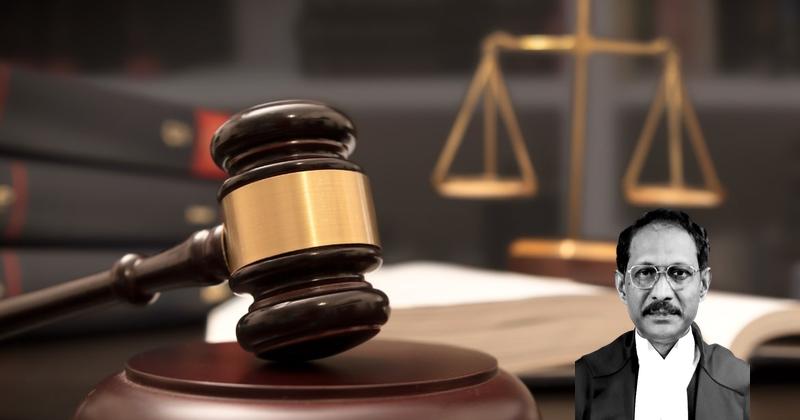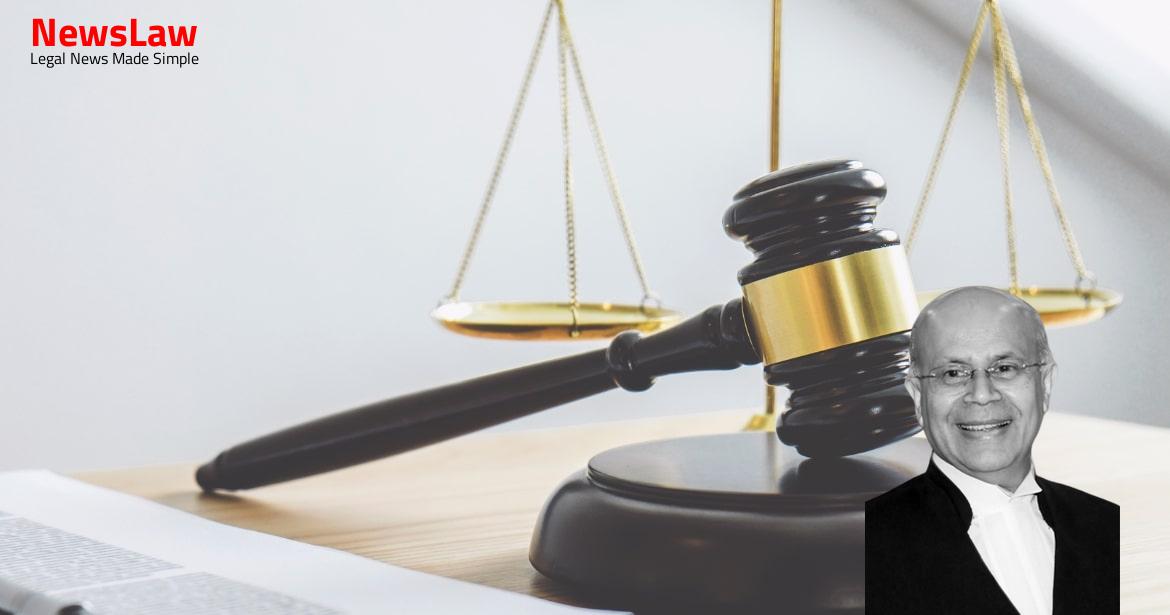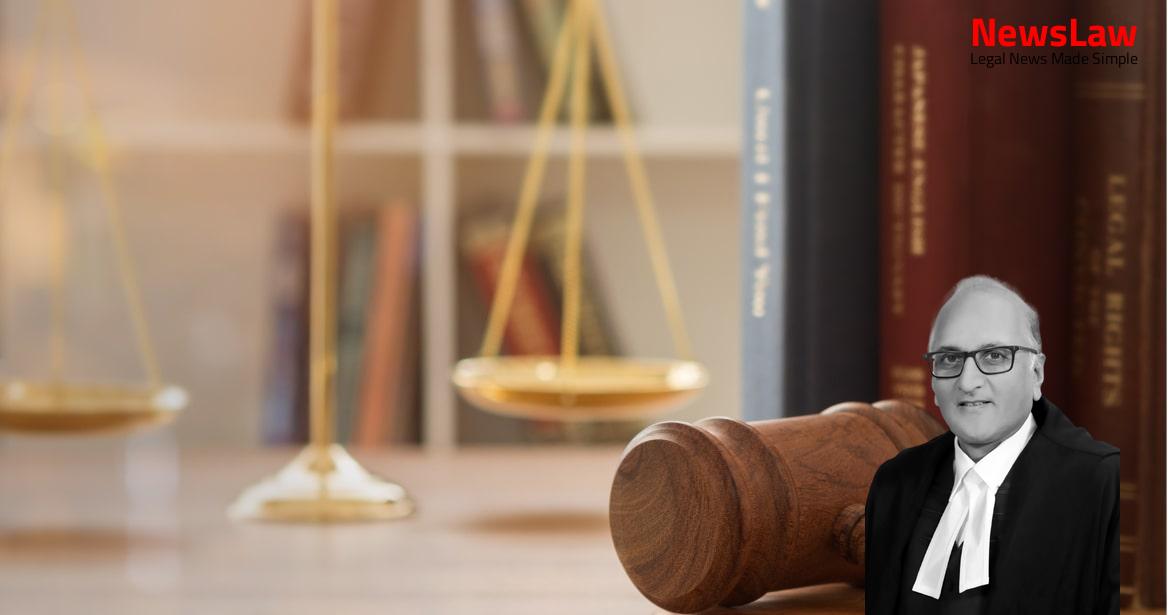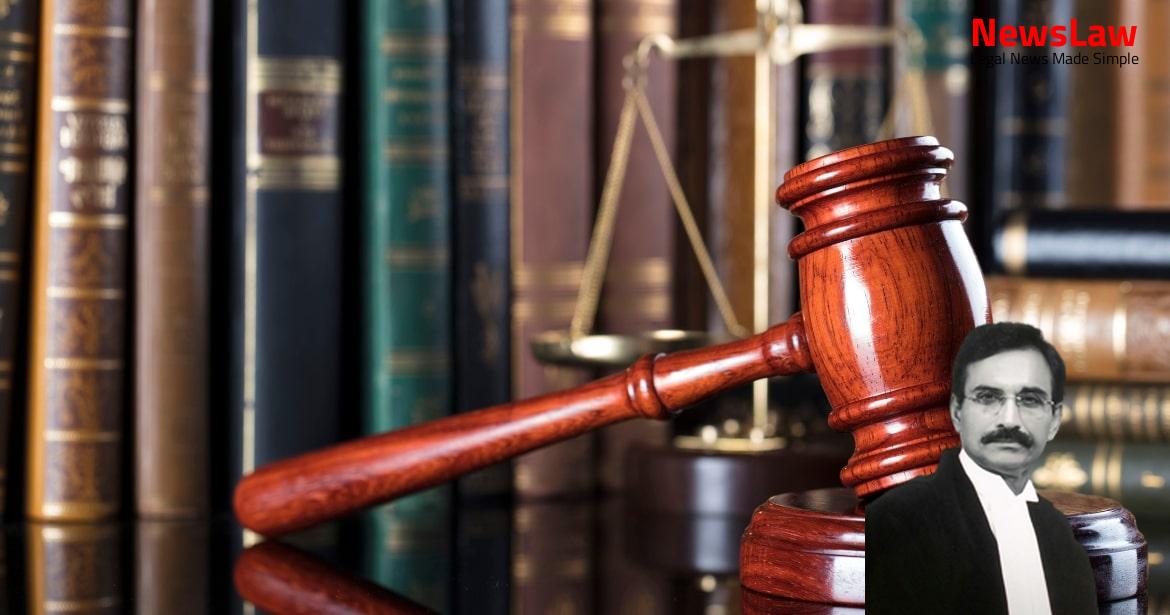As per the impugned judgment the High Court dismissed the challenge against the order dated 30.09.2008 of the Central Administrative Tribunal, Ernakulam Bench in O.A. Through e-mail dated 01.09.2003, he intimated his Divisional Head in VSSC that due to the delay in processing his request for leave, he reached South Korea to carry out his post-doctoral research at Andong National University in South Korea. Thereupon, disciplinary action was initiated against the appellant and he was charge-sheeted on 19.12.2003 for unauthorized absence and publication of papers without following due procedure or obtaining approval of the Competent Authority.
No 653 of 2007 seeking quashment of the order of dismissal from service and also order directing refund of subsistence allowance drawn after 01.09.2003 besides seeking order for re-instating him in service. No.653 of 2007 to the extent of effacing the retrospective effect of the order of dismissal of the appellant herein from 01.09.2003 and restricting its effect only from the date of the order viz., 11.08.2007 and restraining recovery of subsistence allowance. It is required to be noted that subsequently, as per judgment dated 16.02.2009 the High Court dismissed W.P. (C) No.4918 of 2008 filed by the respondent Organisation and consequently, the order dated 31.05.2010 was issued giving effect to the order of the Tribunal in O.A. Special Procedure in certain cases Notwithstanding anything contained in Rules 11 to 15 – where any penalty is imposed on an employee on the ground of conduct which has led to his conviction on a criminal charge; or where the Disciplinary Authority is satisfied for reasons to be recorded by it in writing that it is not reasonably practicable to hold an inquiry in the manner provided in these Rules; or where the President is satisfied that in the interest of the security of the State, it is not expedient to hold any inquiry in the manner provided in these Rules, the Disciplinary Authority may consider the circumstances of the case and make such orders thereon as it deems fit: Provided that the employee may be given an opportunity of making representation on the penalty proposed to be imposed before any order is made in a case under Clause (i): Provided further that the Commission shall be consulted, where such consultation is necessary, before any orders are made in any case under this Rule.”
It is to be noted that even according to the appellant, Rule 16 (iii) of the CCA Rules is in pari materia to clause (c) of the second proviso to Article 311 (2) of the Constitution of India.
The decision in Tulsiram Patel’s case (supra) would reveal the position that compliance with the mandate under Article 311 (2) and in that regard, issuance of charge sheet and hearing on the charges to be given to a Government servant, with respect to any of the aforesaid three major penalties proposed to be imposed upon him, would not arise when clause (c) of the second proviso to Article 311 (2) comes into play and the same would be the position in the case of service rules reproducing the second proviso in whole or in part and whether the language used is identical with that used in the second proviso or not. Chellappan that having regard to the meaning of the word used in the context of the phrase “the Disciplinary Authority may consider the circumstances of the case and make such orders thereon as it deems fit” under Rule 14(1) of the Railway Servants (Discipline and Appeal) Rules, 1968, that an objective consideration is possible “only if the delinquent employee is heard and is given a chance to satisfy the authority regarding the final orders that may be passed by the said authority” is not acceptable. The satisfaction of the President or Governor, as the case may be, must be with respect to the expediency or inexpediency of holding an inquiry in the interest of the security of the State and an inquiry in which such an act would lead to disclosure of sensitive information and also the use of information and hence such an inquiry into the acts would be prejudicial to the interest of the security of the State as much as those acts would, it was held.
Clause (b) of the second proviso to Article 311 equally makes this clear when the power to dispense with an inquiry is conferred by it upon the authority empowered to dismiss, remove or reduce in rank a government servant in a case where such authority is satisfied that for some reason, to be recorded by that authority in writing, it is not reasonably practicable to hold such inquiry, because if it was the personal satisfaction of the President or the Governor, the question of the satisfaction of any authority empowered to dismiss or remove or reduce in rank a government servant would not arise. Thus, though under Article 310 (1) the tenure of a government servant is at the pleasure of the President or the Governor, the exercise of such pleasure can be either by the President or the Governor acting with the aid and on the advice of the Council of Ministers or by the authority specified in Acts made under Article 309 or in rules made under such Acts or made under the proviso of Article 309; and in the case of clause (c) of the second proviso to Article 311 (2), the inquiry is to be dispensed with not on the personal satisfaction of the President or the Governor but on his satisfaction arrived at with the aid and on the advice of the Council of Ministers.” “101…
This is, however, the only scope which Article 14 can have in relation to the second proviso, but to hold that once the second proviso is properly applied and clause (2) of Article 311 excluded, Article 14 will step in to take the place of clause (2) would be to nullify the effect of the opening words of the second proviso and thus frustrate the intention of the makers of the Constitution…” “114. In order to arrive at a decision as to which penalty should be imposed, the disciplinary authority will have to take into consideration the various factors set out in Challappan case It is, however, not possible to agree with the approach adopted in Challappan case in considering Rule 14 of the Railway Servants Rules in isolation and apart from the second proviso to Article 311 (2), nor with the interpretation placed by it upon the word ‘consider’ in the last part of Rule 14. In the same way, they cannot restrict the exclusionary impact of the second proviso to Article 311 (2) because that would be to impose a restriction upon the exercise of pleasure under Article 310 (1) which has become free of the restrictions placed upon it by clause (2) of Article 311 by reason of the operation of the second proviso to that clause. The consideration under Rule 14 of what penalty should be imposed upon a delinquent railway servant must, therefore, be ex parte and where the disciplinary authority comes to the conclusion that the penalty which the facts and circumstances of the case warrant is either of dismissal or removal of reduction in rank, no opportunity of showing cause against such penalty proposed to be imposed upon him can be afforded to the delinquent government servant.
There are a number of orders which are of necessity passed without hearing the party who may be affected by them. The decision in Challappan case is, therefore, not correct with respect to the interpretation placed by it upon Rule 14 of the Railway Servants Rules and particularly upon the word ‘consider’ occurring in the last part of that rule and in interpreting Rule 14 by itself and not in conjunction with the second proviso to Article 311 (2). It is also well settled that where a source of power exists, the exercise of such power is referable only to that source and not to some other source under which were that power exercised, the exercise of such power would be invalid and without jurisdiction.
Ben Hiraben Manilal)
The omission to mention in the impugned orders the relevant clause of the second proviso or the relevant service rule will not, therefore, have the effect of invalidating the orders and the orders must be read as having been made under the applicable clause of the second proviso to Article 311 (2) read with the relevant service rule.” In paragraph 144 therein it was held as under: – “144. such acts, would be disclosed and thus in cases such as these an inquiry into acts prejudicial to the interest of the security of the State would prejudice the interest of the security of the State as much as those acts would.” In the decision in Union of India v. So long as there is material before the President which is relevant for arriving at his satisfaction as to action being taken under clause (c) to the second proviso to Article 311(2), the court would be bound by the order so passed.
The Court has said, (1) that the order would be open to challenge on the ground of mala fides or being based wholly on extraneous and/or irrelevant grounds; (2) even if some of the material on which the action is taken is found to be irrelevant the court would still not interfere so long as there is some relevant material sustaining the action; (3) the truth or correctness of the material cannot be questioned by the court nor will it go into the adequacy of the material and it will also not substitute its opinion for that of the President; (4) the ground of mala fides takes in, inter alia, situations where the proclamation is found to be a clear case of abuse of power or what is sometimes called fraud on power; (5) the court will not lightly presume abuse or misuse of power and will make allowance for the fact that the President and the Council of Ministers are the best judge of the situation and that they are also in possession of information and material and the Constitution has trusted their judgment in the matter; (6) this does not mean that the President and the Council of Ministers are the final arbiters in the matter or that their opinion is conclusive. Sharma, this Court held that dismissal without an inquiry in the interest of national security under clause (c) of the second proviso to Article 311 (2) of the Constitution did not require recording of reasons for dispensing with the inquiry. If in terms of the mandate of the Constitution, the communication of the charge and holding of an enquiry could be dispensed with, in view of the interest involving security of the State, there is equally for the same reasons no necessity of communicating the reasons for arriving at the satisfaction as to why the extreme penalty of dismissal is imposed on the delinquent officer.
The High Court was, therefore, not justified in passing the impugned order.”
After carefully going through the provisions under Clause (iii) of Rule 16 of the CCA Rules, we have already found, as concurrently found by the Central Administrative Tribunal and the High Court, that the said provision is a service rule virtually reproducing clause (c) of the second proviso to Article 311 (2) of the Constitution of India though the language used is not identical. Manifold contentions have been raised by Shri Gopal Sankaranarayanan, learned Senior Advocate appearing for the appellant to contend that both the Tribunal and the High Court had fallen in error in upholding the order of dismissal passed without conducting an inquiry in invocation Clause (iii) of Rule 16 of the CCA Rules.
It is also the contention that there is no justification in holding that it is not expedient to conduct an inquiry in terms of Rule 16 (iii) of CCA Rules after deciding to conduct an inquiry and in fact, actually conducting an inquiry. It is the further contention that though the records of the cases were placed before the Tribunal, it had not exercised its jurisdiction to conduct a judicial review of the substantive satisfaction required to pass an order under Rule 16 (iii) of the CCA Rules. It is submitted that the proceedings initiated by Memorandum dated 19.12.2003 under Rule 11 of the CCA Rules and the proceedings which culminated in the dismissal of the appellant under Rule 16 (iii) of the CCA Rules are distinct. Going by the counter affidavit filed before this Court on behalf of respondent Nos.1 to 4, inter alia, the following relevant facts were taken into account to invoke the power under Rule 16 (iii) of the CCA Rules instead of proceeding to file a supplementary charge sheet under Rule 11 of the CCA Rules, such as:- (i) the way the Korean authorities had harboured him for almost two years, (ii) his continued contacts and interactions with them in spite of orders to the contrary, (iii) the manner in which he managed to leave the country in spite of the Look Out Notices issued by the Immigration Authorities to the Police and International Airport authorities, (iv) his further exposure to the ISRO’S critical rocket technologies would have serious complications, and 19. The appellant had unauthorized association with foreign institution on a subject, which is a strategic research and development subject in the respondent organization and based on which the nation’s rocketry and ambitious launch vehicle programs were advancing and a doubtful circumstance of disclosure of vital data to unauthorized foreign agencies is created it is a matter of concern for the security of the State. Taking up all such contentions, it was submitted by the learned counsel appearing for respondent Nos.1 to 4 that the invocation of the power under Rule 16 (iii) of the CCA Rules in dismissing the appellant from service was subjected to judicial review, initially by the Tribunal and then by the High Court and, therefore, no case, whatsoever was made out by the appellant so as to compel invocation of the power under Article 136 of the Constitution of India to conduct a further judicial review. We are of the considered view that the Court cannot be an island and feign oblivion of the pivotal role of a scientist/engineer attached to ISRO and also the role of ISRO as the space agency of India. Though his application dated 18.07.2003 was not sanctioned, through another e-mail, he applied for 89 days’ leave from 01.09.2003 to 28.11.2003 and continued to stay in South Korea despite being informed that his leave was not sanctioned and was required to report for duty not later than 11.09.2003. The aforesaid factual aspects would reveal that without permission from the competent authority the appellant went to South Korea, joined Andong National University, South Korea and assisted Prof. Kim and Annexure P4 would reveal the repeated advice to the appellant not to have any contact in future with any external agency, such as Andong National University, South Korea, without permission from appropriate authorities in ISRO.
In such circumstances, his continued association with a foreign agency/university, ignoring the fact that he is a responsible scientist in the ISRO, which is a highly sensitive and strategic research and development organization under the Department of Space, Government of India, if viewed suspiciously and thought that his further exposure to ISRO’s critical rocket technologies would create serious complications, it cannot be said to be bereft of substance and not a matter of concern in regard to the security of the State. In the case on hand in invocation of the provision of Rule 16 (iii) of the CCA Rules, order dated 11.08.2007 was passed dismissing the appellant from service with effect from 01.09.2003 without conducting inquiry upon the satisfaction of the President that it is not expedient to hold any inquiry in the manner provided in the CCA Rules “in the interest of the security of the State”. Paragraph 126 of the decision of the Constitution Bench in Tulsiram Patel’s case (supra) would reveal that the Constitution Bench, while considering a provision pari materia to Rule 16 (iii) of the CCA Rules viz., Rule 14 of the Railway Servants Rules, found error inasmuch as the issue was considered by confining to Rule 14 itself, without taking into account the second proviso of Article 311 (2) of the Constitution of India.
Obviously, the question whether it is expedient to hold an inquiry as provided under the CCA Rules has to be considered and the satisfaction as to its expediency or inexpediency has to be reached based on “interest of the security of the State”. Furthermore, it was held that there are various ways in which “security of the State” could be affected such as, by State secrets or information relating to defence production or similar matters being passed on to other countries, whether inimical or not to our country, or by secret links with terrorists. The satisfaction of the President or the Governor must, therefore, be with respect to the expediency or inexpediency of holding an inquiry in the interest of the security of the State. When once it is obvious that circumstances based on materials capable of arriving at a satisfaction that it is not expedient to hold an inquiry “in the interest of the security of the State” are available the decision in holding that it is inexpedient “in the interest of the security of the State” to hold an inquiry warrants no further scrutiny, rather, it is not fit to be subjected to further judicial review. While considering the above question, it is relevant to refer again to the decision of the Constitution Bench in Tulsiram Patel’s case (supra). Chellappan’s case (supra), would go to show that it was held therein that the disciplinary authority while deciding the question as to what penalty should be imposed on the delinquent employee in the facts and circumstances of a particular case would have to take into account the entire conduct of the delinquent employee, a gravity of the misconduct committed by him, the impact which his misconduct is likely to have on the administration and other extenuating circumstances or redeeming features if any present in the case and so on and so forth.
It is not the mere unauthorized absence of the appellant that actually weighed with the authority and evidently, the organization is perfectly justified in casting suspicion on the honesty, integrity, reliability, dependability and trustworthiness in view of the factual situation obtained in this case, as explained in the counter affidavit, besides entertaining the stand that his unauthorized association with foreign institution, especially in the area of propulsion, which is a strategic research and development subject in the organization and based on which the nation’s rocketry and ambitious launch vehicle programs are/were advancing, was a matter of concern for the security of the State. Shah)……………………, J.
Case Title: V.R. SANAL KUMAR Vs. UNION OF INDIA (2023 INSC 526)
Case Number: C.A. No.-006301-006301 / 2013



